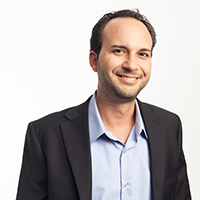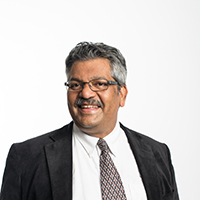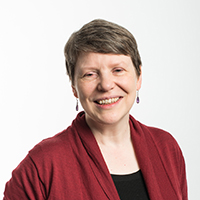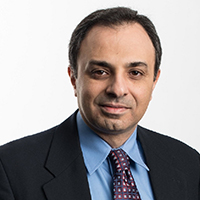Conduct original research under the supervision of leading experts in one of our dedicated research groups. Access world-leading facilities for heavy structures and geotechnical centrifuge testing.
Key information
| Starting date | Deadline for application |
|---|---|
Duration
Civil Engineering Postgraduate research degrees PhD/MPhil course Overview
The School of Science & Technology offers research degrees in Civil Engineering, Geotechnical Engineering, Hydraulic Engineering and Structural Engineering.
Whichever route you choose, you will conduct in-depth research alongside world-leading experts in Civil Engineering within one of four research groups:
Civil Engineering Structures focuses on developing integrated solutions for sustainable and resilient structures under adverse operational and extreme loading conditions.
Fluid-Structure Interaction addresses the challenges associated with marine engineering, offshore wind energy, high buildings and biomechanics.
Multi-scale Geotechnical Engineering links micro-mechanics to the macro-response.
Temporary Works and Construction Method Engineering addresses industry challenges associated with construction processes.
Access world-leading facilities including extensive structural laboratories, our recently refurbished geotechnical centrifuge, as well as unique, world-leading computer codes, such as QALE-FEM and qaleFOAM.
Structure
Doctoral research students are initially registered for an MPhil and transfer to PhD at the end of the first year. This is following a satisfactory submission and examination of a report and transfer presentation.
The groups use experimental and numerical techniques to investigate the following:
- Performance-based design and assessment of structures
- Inerter-based vibration control for civil engineering structures
- Smart structures adaptable to adverse environmental loadings and conditions
- Structural health monitoring and smart sensing of large-scale civil engineering structures
- New and/or adapting materials (for enhanced performance)
- Multi-hazard analysis/design/ (risk) management of structures
- Optimisation of civil engineering structures design for resiliency and sustainability
- Soil-structure interaction and the interaction between buried structures
- Multi-scale soil mechanics
- Novel sustainable pile systems
- The behaviour of soils subjected to remoulding during geotechnical construction
- Large scale nonlinear simulation of ocean waves and wind/current effects on ocean waves
- Floating offshore wind systems
- Nonlinear interaction between waves and rigid bodies (such as ships, platforms for oil and gas, offshore wind systems, wave energy devices)
- Nonlinear Hydro-elasticity (Water-Structure Interaction), such as Vortex Induced Vibration (VIV) and large ships in steep waves
- Aeroelasticity (Air-Structure Interaction), such as wind interaction with tall buildings and long span bridges
- Fire Dynamics (Dynamic Fire/Blast-structure interaction
- Sediment transport mechanisms (from Geotechnics and Hydrodynamics point of view)
For full details about the City PhD programme structure, please see the Guide for Research Students.
Requirements
Entry requirements
A good honours degree (normally no less than an upper second class honours degree from a UK University or an equivalent qualification) in an appropriate subject. Some subjects also require an appropriate Masters qualification.
English requirements
Prospective students whose mother tongue is not English must meet any one or a combination of the following:
- An overall score of 6.5 with a minimum of 6.0 in each of the four components in IELTS.
- The award of a Master degree which was taught in English
The UK Border Agency requires us to confirm that you are at level B2 or above in all components of English before issuing Visa Documents.
For more information see our English language proficiency requirements at City.
Visa requirements
If you are not from the European Economic Area / Switzerland and you are coming to study in the UK, you may need to apply for a visa or entry clearance to come to the UK to study.
The way that you apply may vary depending on the length of your course. There are different rules for:
- Students on courses of more than six months
- Students on courses of less than six months
- Students on a pre-sessional English language course.
For more information see our main Visa page.
Some applicants may require an ATAS (Academic Technology Approval Scheme) certificate before joining a course. ATAS is a certificate issued by the Foreign and Commonwealth Office (FCO), which gives you security clearance to study certain postgraduate programmes at City, University of London.
Non-EEA students who choose to study certain subjects at MSc or MEng or PhD level in the UK have to apply for and receive clearance under the ATAS scheme regardless of if they are required to apply for a Student visa or not.
For more information see Applying for an Academic Technology Approval Scheme (ATAS) certificate.
Fees and funding
Full-time Home/UK:£6,360 per year
Part-time Home/UK:£3,180 per year
Full-time International:£19,100 per year
Part-time International:£9,550 per year
External candidate study of this course costs £2,120 (UK) or £6,630 (Overseas/EU) for full time study and £1,060 (UK) or £3,315 (Overseas/EU) for part-time study.
Fees for doctoral candidates are charged annually and cover registration, supervision and examination.
Fees are subject to review each year and may vary during your period of registration. Where applicable, fees for City's programmes will be subject to inflationary increases in each academic year of study commencing in September. Our policy for these increases is set out in our terms and conditions of study.
Support for PhD study
Prospective students are encouraged to explore doctoral Grants and funding opportunities such as:
- Commonwealth Scholarships
- School of Science & Technology Doctoral Studentships
- Research Council studentship awards, if available.
Our bursaries are non-repayable sums of money granted by the University, usually based on need.
Our loans are repayable sums of money granted by the University or other body.
Our scholarships are when the University pays towards your Study fees. You may also be eligible for further funding.
Postgraduate Doctoral Loans
The Government has introduced a new Postgraduate Doctoral Loans scheme which can provide a loan of up to £25,000.
This will be over three years to support study for a doctoral degree.
A Postgraduate Doctoral Loan can help with course fees and living costs while you study. It can be used alongside any other forms of support you may be able to receive.
For more information, please see our Postgraduate Doctoral Loans page.
Additional expenses
Some of our degrees may involve additional expenses which are not covered by your tuition fees. Find out more about additional expenses.
Academic support
City has a well-established structure and processes to support your research.
Supervision
Students will all be allocated a primary and secondary supervisor to provide guidance and support during their studies.
Training
The City Doctoral College organises courses and research events to assist students to develop their research skills. It also promotes the exchange of research ideas across City.
Students are also encouraged to attend relevant Masters level courses where appropriate.
Research Environment
The Department of Engineering is a focus for seminars and research activities directly relevant to students' research topics.
Most research students study within groups engaged in similar research and often share experimental and numerical techniques. This is to maximise the progress that can be made during the students' studies.
How to apply
We accept applications on an ongoing basis for entry in October, January and April. Please see the requirements section above for eligibility criteria.
If you are applying for a specific scholarship or studentship, please make this clear within your application. Your scholarship/studentship will then be considered alongside your application. Please note, individual scholarships and studentships may have specific application deadlines.
It is essential that you contact a member of staff from the School in the department you are interested in. You can then discuss your ideas for research (research proposal). Unfortunately, we will not be able to consider your application without this pre-requisite.
Details of relevant academic staff can be found here.
You are advised to submit your application at least 12 weeks before your proposed start date. This will allow for us to consider and process your application. Once you have identified a supervisor who will accept to guide through your research, please submit an application online.
Supporting documents
To apply online, an applicant will need to submit the following supporting documents:
- Research proposal. The Research Proposal should be a maximum of 3 sides A4. See guidance on writing your research proposal
- Copies of degree certificates and transcripts – original will be requested before an offer is made
- Official work e-mail addresses (not private ones) for two referees (one of which must be an academic)
- Proof of English language proficiency (if applicable).Evidence of sponsorship (if applicable).
Apply now
-
Select one of the available starting dates to start your application.
-
Select one of the available starting dates to start your application.
Apply now
Full-time
Part-time
For further application enquiries please contact our PGR enquiries team.
Find a supervisor
See our full list of academic staff and potential supervisors in Department of Engineering.

Dr Agathoklis Giaralis
Associate Professor (Reader) in Structural Dynamics
Department of Engineering

Professor Cedric D'Mello
Professor of Structural Engineering
Department of Engineering

Professor Sarah Stallebrass
Professor of Soil Mechanics
Department of Engineering

Professor Ashraf Ayoub
Associate Dean (Corporate Partnerships)
Department of Engineering
